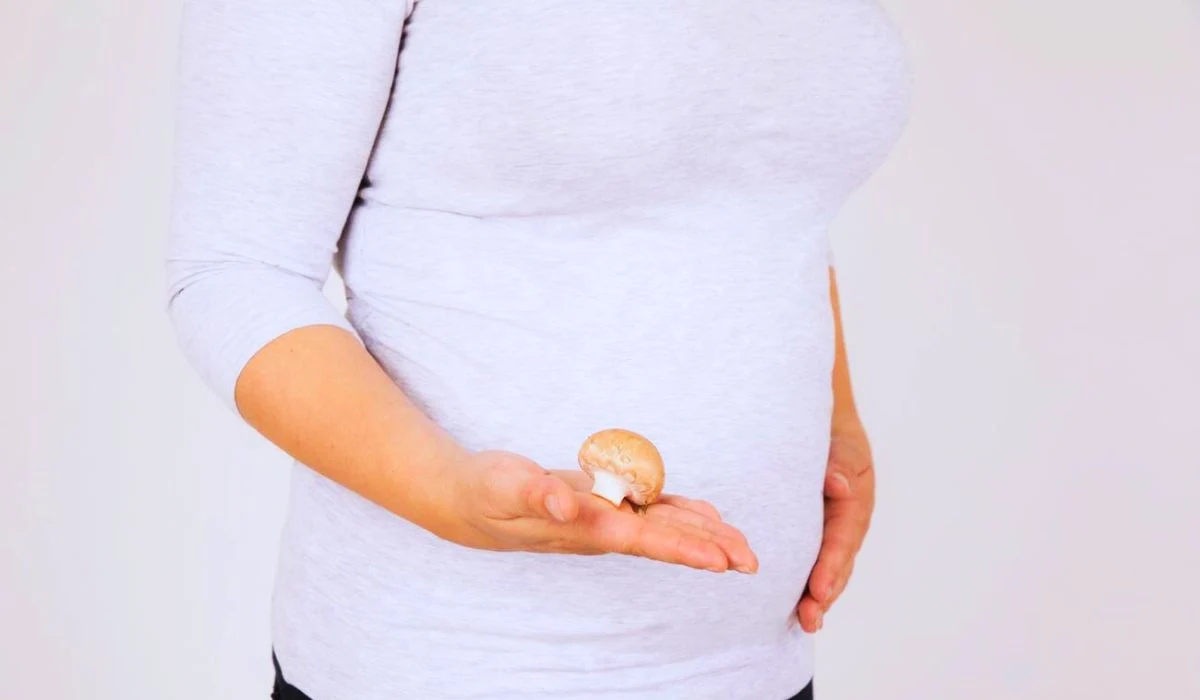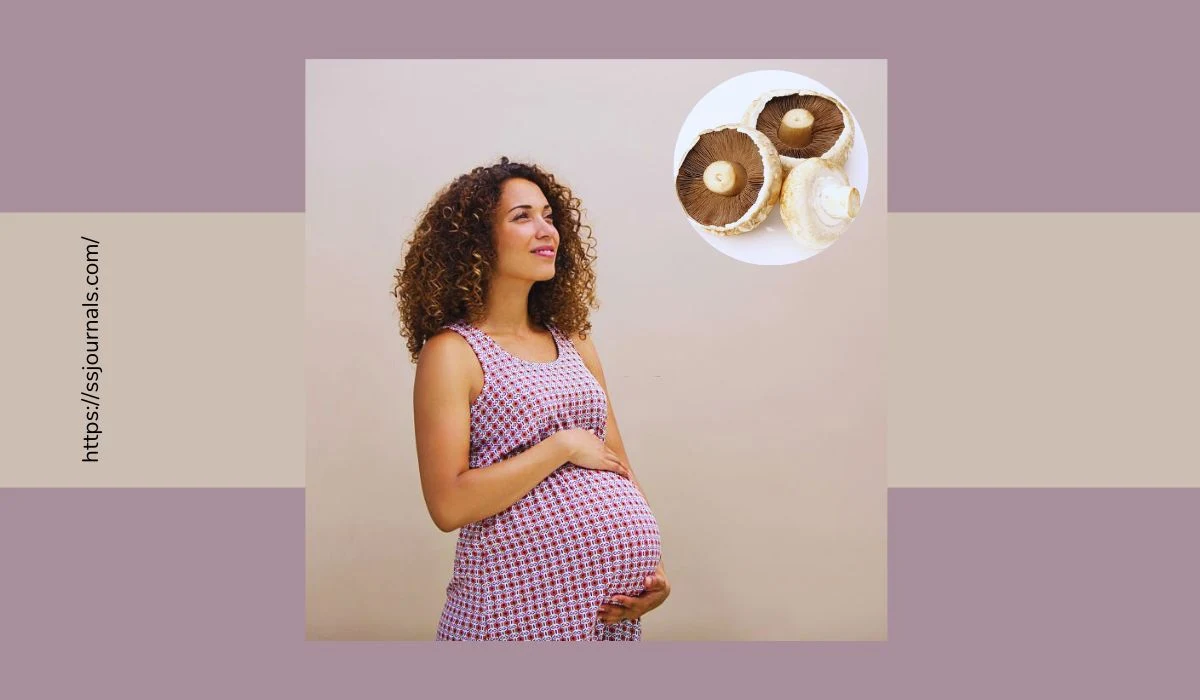Do mushrooms make the cut when it comes to pregnancy? Let’s explore!
Mushrooms are delicious and nutritive. However, when it comes to pregnancy, you must know the factors before chowing them down.
Remember, every pregnancy is different. Get advice from a professional about your dietary needs during pregnancy.
Benefits Of Eating Mushrooms During Pregnancy

Mushrooms during pregnancy have lots of benefits for mums-to-be and their babies! They are:
- Rich in nutrients like B, D, and folate – important for healthy growth.
- Boosting the immune system – natural compounds help protect from infections.
- Low calorie and high fiber – great for controlling weight gain.
Plus, mushrooms can absorb vitamin D from sunlight. This means that mushrooms can naturally increase their vitamin D content. Eating them as part of a balanced diet can be really helpful for pregnant women who don’t get much sun.
Mushrooms And Pregnancy: Potential Risks And Precautions
Ensure safety during pregnancy by heeding the following guidelines when consuming mushrooms. It’s important to avoid using excessive amounts of mushrooms and to ensure they are properly cooked to minimize the risk of foodborne illnesses.
Additionally, be cautious when consuming wild mushrooms, as they may contain toxins that could harm both mother and baby. It is advisable to consult a healthcare professional or a nutritionist for personalized advice on mushroom consumption during pregnancy.
🍄 Contamination And Foodborne Illnesses
Let’s take a look at some key data about contaminants in mushrooms that can cause illnesses. Such as Salmonella which can cause Salmonellosis with symptoms of diarrhea, fever, and abdominal cramps.
Or Listeria which can cause Listeriosis with fever, muscle aches, and headache. And E. coli which can cause E. coli infection with diarrhea (sometimes bloody), and nausea.
Pregnant women should be careful when purchasing and handling mushrooms. Cooking them thoroughly can help kill bacteria and reduce the risk of contamination.
A study published in the Journal of Food Protection found that cooking mushrooms at high temperatures significantly reduces bacterial contamination.
So, expectant mothers should be mindful when it comes to consuming mushrooms during pregnancy. Proper food handling and cooking methods can help safeguard their health and that of their baby. Maybe it’s best to avoid mushrooms completely, just to be safe.
🍄 Allergic Reactions
It’s possible for pregnant women to have allergic reactions to certain mushrooms; symptoms such as itching, hives, swelling, difficulty breathing, and digestive issues may occur.
If you experience any of these, seek medical help ASAP. Don’t self-diagnose or self-medicate; consult your healthcare provider.
🍄 Toxic Mushrooms To Avoid
Mushrooms during pregnancy can bring about risks and precautions. It is important to stay away from toxic mushrooms for the safety of the mother and baby.
- Death Cap Mushroom: Highly toxic and looks like edible mushrooms. But, can cause liver damage or death if ingested.
- Amanita Phalloides: AKA Destroying Angel. Contains toxins that can cause organ failure – one of the deadliest mushrooms.
- False Morel: Popular in some cuisines, but can cause nausea, vomiting, and diarrhea due to its toxin gyromitrin.
Safe Ways To Consume Mushrooms During Pregnancy
Safe Practices for Consuming Mushrooms During Pregnancy
During pregnancy, it is important to be cautious about the types of food consumed, including mushrooms. Here are six safe ways to consume mushrooms during pregnancy:
- Choose fresh mushrooms from trusted sources: Ensure that the mushrooms are fresh and free from any visible signs of spoilage.
- Cook mushrooms thoroughly: Properly cooking mushrooms kill potentially harmful bacteria and reduces the risk of foodborne illnesses.
- Avoid raw or undercooked mushrooms: Raw or undercooked mushrooms may contain harmful bacteria, so ensure that they are cooked thoroughly.
- Include mushrooms as part of a balanced diet: Incorporating mushrooms into a well-balanced diet can provide essential nutrients and contribute to a healthy pregnancy.
- Practice good kitchen hygiene: Clean all utensils, surfaces, and cutting boards properly before and after handling mushrooms to prevent cross-contamination.
- Consider organic mushrooms: Choosing organic mushrooms can reduce exposure to pesticides and other potentially harmful substances.
Choosing And Storing Mushrooms
Want to ensure safety when consuming mushrooms during pregnancy? Here are some tips to make sure you choose and store them correctly:
- Look for freshness: Pick mushrooms that are firm and not bruised or discolored.
- Check for mold: Skip over mushrooms that seem slimy or fuzzy, as this could mean mold.
- Opt for organic: Organic mushrooms can help prevent exposure to pesticides and other chemicals.
- Proper storage: Store fresh mushrooms in a paper bag in the fridge for up to one week.
- Avoid moisture: Keep mushrooms dry before putting them away, as too much moisture leads to spoilage.
Also, beware of wild mushrooms as they can be risky for pregnant women.

